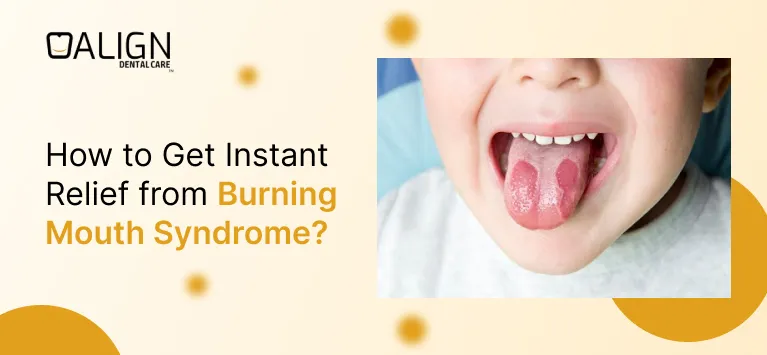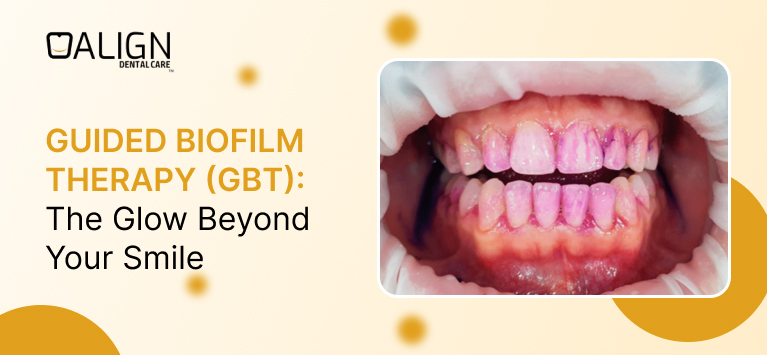
Tingling Sensation in Your Tongue
Do you have any time come across a sensation that you could feel something as if it were alive on your tongue? This sensation of pins and needles is unusual and can occur for a variety of reasons. While it may seem minor, understanding why your tongue feels tingly can help you address potential causes. Whether it’s from temporary factors like eating spicy foods or more serious health conditions, a tingling tongue could be your body’s way of signaling an issue. In this blog, we’ll explore what causes tingling in the tongue, common symptoms, possible triggers, and when you should consult a doctor.
Table of Contents
What is the Tingling Sensation?
Tingling, scientifically termed ‘paresthesia, ‘ is an unusual sensation. It may be experienced in different parts of the body, including on the tongue. Further, it is more or less like having several menial needles puncture the skin surface or, in this instance, the tongue. It ranges from an unpleasant tingle, likely to be localized and short-lived, to the symptomatology. This becomes more concerning if it persists for a long time without other positive signs.
Common Causes of Tongue Tingling
Tingling in the tongue and its various possibilities can range from a fairly innocent background. It is because of such things as what one takes to more serious reasons that are associated with certain illnesses. The most common causes are:
- Eating Hot or Spicy Foods
Some foods, especially those that are hot, are likely to cause a thrill on the tongue nerves. This transient sensation can bring tingling or numbness.
- The burning sensation that is contained in spicy foods contains capsaicin, which stimulates nerves.
- Hot foods and beverages can burn the tongue, potentially causing itchiness and tingling for some time.
Such sensations subside and disappear within minutes to hours after consumers have taken their meals.
- Allergic Reactions
Food allergies may lead to the development of tingling on the tongue. This is especially true when one is eating fruits, nuts, or shellfish. This is often part of a condition known as oral allergy syndrome (OAS).
- Tingling is an immediate response to allergens in food.
- Other symptoms might include swelling, itching, or difficulty breathing.
If you suspect an allergy, seek medical advice, as allergic reactions can be serious.
- Vitamin Deficiencies
Hypovitaminosis is known to cause tongue tingling, especially if some of the vitamins are lacking, and most importantly, vitamin B12. Vitamin B12 is used in the body for nerve-related functions; hence, a deficiency could have an impact on the nerves. This results in the generation of various sensations, such as tingling in the tongue as well as the other body parts.
- A B12 deficiency can lead to symptoms such as altered sensation in the limbs, a burning sensation, and tongue swelling.
- Additional signs include persistent fatigue, memory problems, and difficulty concentrating.
It is suggested that taking vitamin supplements or changing one’s diet can solve this problem eventually.
Health Conditions Linked to Tongue Tingling
While some people may experience temporary tingling in their tongue due to eating certain healthy foods, it may also be associated with other diseases. Below, find a list of conditions where tongue tingling is a common symptom:
- Anxiety and Stress
Anxiety or stress can also cause a tingling sensation in the tongue. This is usually a result of the release of hormones in the body, preparing it for a battle or fleeing. It may cause a person to breathe too quickly or tighten muscles of the face and mouth and other muscles of the body.
- In stress, adrenaline in the body may produce increased circulation in some parts of the body, which results in tingling.
- Associated symptoms may include dry mouth, rapid breathing, jaw tightness, and more.
Reduction of such symptoms might be achieved by learning stress management in relaxation techniques or undergoing therapy.
- Oral Thrush
An infection that affects the mouth and, specifically, the tongue is oral thrush, and it produces a tingling or burning sensation. This condition is common among people with weakened immune systems, those taking antibiotics, and individuals with other underlying health issues.
- Thrush causes a white coating on the tongue and often results in a burning or tingling sensation.
- Additional symptoms may include stiffness, difficulty swallowing, and a foul taste in the mouth.
The usual therapy includes the administration of an antifungal, which can efficiently get rid of the infection.
- Multiple Sclerosis (MS)
Multiple sclerosis is an autoimmune disease of the central nervous system. MS affects two crucial organs: the brain and the spinal cord. One of the initial symptoms of MS is paraesthesia, which can occur in various parts of the body, including the tongue.
- MS impacts communication between the brain and the rest of the body.
- For tingling to occur, it may be accompanied by muscle weakness, coordination problems, or vision changes.
If a tingling sensation does not go away and is accompanied by other neurological signs and symptoms, then a healthcare provider should be sought.
Other Possible Causes of Tongue Tingling
Other possible causes of the sensation of tingling in the tongue include some other causes that may not be as prevalent or severe as the former ones. It might be temporary or even easily cured, though the point of treatment has always raised controversy. Here they are:
- Nerve Damage
Some examples of tingling may be found in any injury to the tongue or any of the nerves found in the mouth. Some treatment measures in dentistry, like tooth extractions or a filling, may slightly touch the nerves, thus causing a tingling sensation.
- Local anesthesia that may be used during dental work may also result in a temporary loss of sensation.
- Usually, tingling that has a connection to nerve damage improves once the area is healed.
- Acid Reflux
Acid reflux can cause stomach acid to move into the throat and mouth, leading to heartburn and a tingling sensation on the tongue.
- Usually, the tingling is sensed along with a taste of sourness or a burning sensation in the mouth.
- One can limit the intake of food that causes the production of acids in the tummy and also take small portions of foods or meals.
- Medications
It is often reported that certain types of medicine, including anti-hypertensive or some chemotherapy drugs, may further lead to tingling of the tongue.
- Consult your physician if you experience tingling after starting a new medication or making changes to your diet.
- Sometimes, the feeling can be relieved by changing the dosage or by taking a different medication.
When to See a Doctor for Tongue Tingling
Tongue tingling is usually harmless and temporary, but it can occasionally indicate a more serious issue. You should seek medical attention if:
- The symptoms re-emerge, or if they are present, the tingling does not stop.
- It includes other signs, namely in the mechanism of breathing, including swallowing.
- You think it has something to do with a disease, for example, MS or severe allergy, etc.
A doctor can take tests to identify the reason for the tingling and the right treatment to administer.
How to Manage and Prevent Tongue Tingling
Treatment focuses on identifying and addressing the cause of tongue tingling. However, there are steps you can take to reduce or prevent this sensation. These are:
- Practice Good Oral Hygiene
Keeping one’s mouth and teeth clean can go a long way toward reducing one’s risk of infections. For example, oral thrush puts a tingling sensation in the tongue.
- Periodically brush your teeth, clean your tongue, and floss to get rid of such bacteria.
- Use mouthwash to reduce germs and keep your mouth fresh.
- Manage Stress Levels
Since stress and anxiety may cause the tingling, the patient should try to relax to reduce the tingling feeling.
- Take some time practicing breathing exercises or meditation.
- Physical activity can also be used to control stress.
- Eat a Balanced Diet
Ensure you’re maintaining proper vitamin levels, especially B12. To overcome the deficiencies that are responsible for nerves, one should maintain a balanced diet.
- Include foods that are rich in B12, such as fish, dairy products, and cereals that have been fortified in the diet.
- Consult on supplements if you can’t meet these nutrients from your diet for one reason or another.
You can, therefore, take the following measures to minimize the occurrence of tongue tingling in the future.
Summary
A tingling sensation in the tongue, as the tongue is an organ in the body, might seem rather peculiar. But in most cases, it is a normal and transitory condition. Whether the bloating is driven by the food you ate, stress, or an undiagnosed medical issue, there are things one can do to help avoid it. If the tingling sensation persists or is accompanied by other symptoms, it’s important to consult a doctor. By taking the right measures, you can effectively manage tongue tingling and ensure better oral health.












